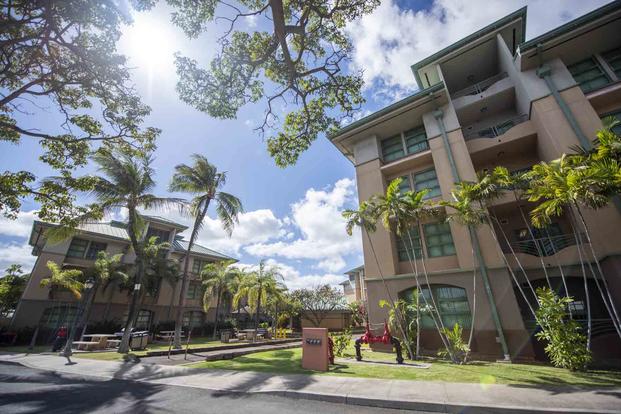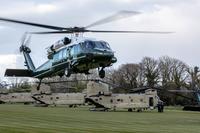The sea services have rolled out new policies for barracks and unaccompanied officer housing that allow incoming residents to refuse rooms considered uninhabitable based on standards set by the Navy and Marine Corps.
Lt. Gen. Edward Banta, deputy commandant for Marine Corps installations and logistics, issued a service-wide message June 6 guaranteeing safe, functional, environmentally healthy barracks in good working order and giving Marines the right not only to refuse the housing but encouraging them to report issues without fear of retaliation or retribution.
The announcement is similar to one last month from the Navy that said residents had the right to live in housing that is "safe, secure and meets applicable health and environmental standards."
Read Next: Biggest Troop Pay Raise in 2 Decades on Track in House Defense Bill
Much like the tenant "bill of rights" established for military families residing in base housing managed by private companies, the guarantees are designed to safeguard Marines and sailors, improve quality of life, and bolster morale.
"The Marine Corps unaccompanied housing program supports operational readiness by ensuring eligible service members aboard our installations are provided high-quality [unaccompanied housing] and associated amenities," Banta wrote in the message. "A commitment to providing a quality of life commensurate with our single and unaccompanied service members' service and sacrifice is integral to recruitment and retention."
The Navy and Marine Corps announcements follow numerous news reports of service members living in moldy, dilapidated housing or barracks that lacked hot water or functional heating and air conditioning.
In 2020, a person familiar with conditions in the barracks at Camp Lejeune, North Carolina, told Military.com that junior Marines needed to clean their quarters constantly with bleach as a result of moldy conditions.
In 2021, Marines sent videos and photos to the publication Task & Purpose with photos and videos of their substandard living conditions.
Last year, a Navy Times investigation found that the service knew about infrastructure problems at Walter Reed National Military Medical Center in Bethesda, Maryland, for years but did not address them. Service members were moved out of the affected buildings within days of the news report.
Since last year, Army soldiers assigned to Fort Stewart, Georgia, and Fort Liberty, North Carolina, have dealt with extensive mold contamination they say caused a host of illnesses, including nose bleeds and respiratory issues that included coughing up blood.
Roughly 1,2000 soldiers were relocated at Fort Liberty, previously known as Fort Bragg, as a result of the living conditions.
The guarantees, known in the Navy as the Bill of Rights & Responsibilities, promises unaccompanied service members the right to live in safe, secure housing that meets health, environmental and safety standards; has functional fixtures, furnishings, appliances and utilities; has access to common areas and amenities; and gets fast maintenance and repair when something breaks.
Residents in return must maintain the cleanliness and functionality of the room, report maintenance and repair issues in a timely manner, and allow access to rooms for repairs. They must notify housing before vacating and report any vandalism or abuse.
"Quality housing for our sailors is a fundamental right," Vice Adm. Ricky Williamson, deputy chief of naval operations for fleet readiness and logistics, wrote in the Navy's announcement in May.
The definition of what counts as "habitable" will be issued by the services in the coming months.
Navy installation commanders were instructed to prominently post the bill of rights in facilities and incorporate it into all "welcome aboard" packets by May 26.
The Marine Corps gave no timeline for implementation.
The Army and Air Force did not respond to queries from Military.com regarding any efforts to provide similar guarantees for soldiers, airmen and Guardians.
During congressional hearings on the fiscal 2024 Defense Department budget, the top enlisted leaders of the DoD's five services said housing is a main priority
"Many of our barracks are more than 30 years old and in dire need of renovations. About one-sixth of which the Marine Corps has, they're poor or they are failing," Sergeant Major of the Marine Corps Troy Black told members of the House Armed Services Personnel Subcommittee on March 9.
-- Patricia Kime can be reached at Patricia.Kime@Military.com.
Related: 98 Military Families Silenced by Nondisclosure Agreements with Private Base Housing Companies













